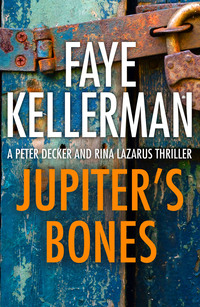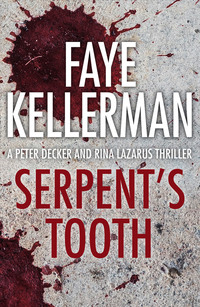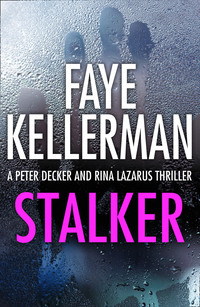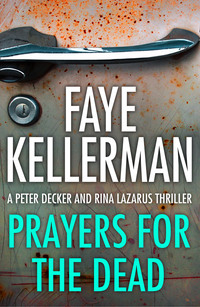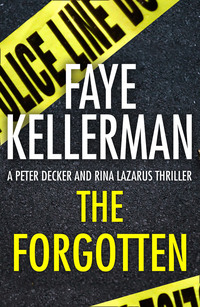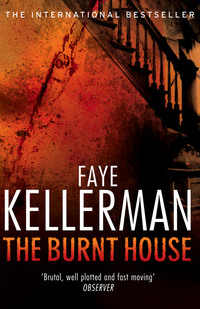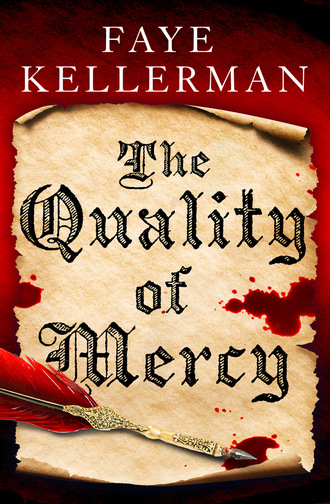
Полная версия
The Quality of Mercy
“It was bolted shut. Prying it open would have been difficult even for the most experienced of thieves. Twould have created much mess and racket.”
“Is your window bolted shut as well?”
“Closed, but not locked. The latch had broken off during the last windstorm. My current preoccupation with Harry has not afforded me time to repair it.”
“So there’s no other way to come in except through the window?”
Shakespeare nodded. “A practical fellow, this ghost of Harry’s.”
“Harry was practical,” Cuthbert said.
Shakespeare smiled and held up an icy shoe by the toe. “What am I to do? I haven’t another pair.”
“Use mine.”
“Be not absurd. Are my feet more valuable than yours?”
“I’ve another pair. We’ll stop by my closet on the way to the theater.”
“Than I shall wear these until we reach your room.”
Cuthbert grabbed the shoe from Shakespeare’s hand. “Admit it or not, my friend, you are ill. You’re red from fever and you’re shivering.”
“And you’ve just bested a miserable cough.”
“Stop jousting, Shakespeare, and listen to me for once. Wear my shoes, I’ll wear these.” Cuthbert squeezed the leather pumps and small trickles of water splashed to the ground. “See. They’re melting already.”
“Such cheer,” Shakespeare said. “It makes me sick.”
“How does your head feel, Will?”
“As if it were visited by the Scavenger’s Daughter.”
Papers tucked under his arms, Shakespeare strolled with Cuthbert in silence down Gracechurch Street. With his feet dry, ensconced in warm woolen socks and cracked-leather boots, he felt much better. The sting of the cold was chasing away his lethargy, and his mind began to revitalize, racing with thoughts of one book or another.
He loved the walk from his room in the city of London to the new theater in Southwark, just over the Thames. In the quiet of the predawn dark ideas would come to him, often starting off as no more than a wisp of reflection—a line or two, perhaps taken from bits of overheard conversation or gossip. London was an early riser, waking not as a man who stretches and bellows and farts, but as a woman who slowly wipes sleep from her eyes and smiles, seducing all that surrounds her with innocence and beauty. He loved her all the time, but more deeply in the mornings.
By the time they reached London Bridge, Shakespeare noticed how truly late it was, his oversleeping an outcome of the potion slipped into his sack, no doubt. The shops and houses that lined the bridge were bustling with activity. The sun had risen hours ago and was desperately trying to break through a sheet of steely clouds. A week ago it had been hot. Last night, freezing, unusual for May. Daft weather, daft times.
They passed St. Thomas of the Bridge, with its stately columns and pointed, arched windows—architecture of the old Church. His mind, filled with the image of Christ, suddenly juxtaposed against the dark memories of last night.
Who had visited him? Though he believed in ghosts, he was skeptical that he’d witnessed a genuine apparition. A phantom from the netherworld would be ethereal—of no form or definite shape. It needn’t have used a physical blow on the back of the head as an admonition. Yet what visited him last night did precisely that.
Shakespeare cleared his thoughts. Walking steadily, he and Cuthbert crossed over the gray waters of the Thames until reaching St. Saviour’s in Southwark. As they continued west, Shakespeare could hear the snorts and cries of the bulls, bears, and dogs caged in Paris Gardens. So far the theaters and baiting arenas had been allowed to remain open for public viewing, but if the toll of the dead from plague climbed further, all forms of amusement would be shut down to prevent further spreading of disease. Compared to last year, it seemed to Shakespeare that Black Death was striking earlier in the season and deadlier than ever.
Shakespeare had been lucky since arriving in London ten years ago. Rarely had the theaters been forced to close for more than a month at a time. The last time they had bolted their doors had been last summer—in July, when London had been choked with disease. The company had taken its productions on tour. Shakespeare remembered that travel had been exhausting. The country roads, often flooded, had been small or nonexistent, and the company’s accommodations had been cheap. Frequently they had passed the night in the stable with the horses, using only loose straw for a blanket. But, marry, the countryside had been in full blossom that year, a palette of color, the air scented sweeter than perfume.
Shakespeare inhaled deeply, and a waft of dung assaulted his nostrils. A bear’s roar filled his ears. A devil it was to project the lines over the blast of animal noises. But the theater’s new location was amid a lot more traffic, and the more traffic, the more money.
They reached the Unicorn. The theater was not yet completed, only half built, and preparations for the play seemed as chaotic as ever. The recent move from Shoreditch to Southwark was simply one more complication in a never-ending series of problems. Stagekeepers attempted to clean the standing pit and the galleries, sweeping away the remains of rotted food served during yesterday’s performance. Hired men wielded hammers and calipers, building scaffolds and fixing warped boards on the platform stage. A boy apprentice, gowned in full costume, raced back and forth, toting faggots of wood needed for repairs. Robin Hart paced furiously, the ’tire man shouting complaints to no one in specific about the condition of the players’ wardrobe. The clothes were being treated carelessly, and he was tired of mending unnecessary tears.
William Dale grabbed Shakespeare as soon as he saw him enter, pulling him away from Cuthbert.
“Where were you?” he asked. “Don’t you realize the time?”
Shakespeare debated giving him an explanation but thought better of it. He shrugged helplessly.
“We’ve a problem,” said the keeper of the books. “The Master of the Revels has taken umbrage to your Richard.”
“Which Richard?”
“The Third.”
“What’s wrong with the book?” Shakespeare asked.
“Willy,” shouted the ’tire man from afar. He was upstairs in the second gallery, holding a bundle of clothing. “Come get fitted.”
“In a minute, Robin,” Shakespeare shouted back. He returned his attention to Dale. “What’s wrong with the play?”
“Master Tilney objects to your portrayal of Richard. He claims you’ve made the Duke of Gloucester too human.”
Shakespeare sighed. “Too human?”
“The original book—which you’ve rewritten—showed Gloucester to be an evil, scheming—”
“I’ve continued to write him with much evil—”
“He has too much doubt, Will,” Dale said. “Aye, he does evil, but he anguishes about it.”
“Without the anguish,” Shakespeare said, “he becomes a flat figure of a man with no thoughts other than those of the Devil. If I’d wanted to write a passion play, where good is named good, evil is named evil, chastity is a boy wearing white and gluttony a fat man with a pomaded beard, I would have done so without using the pretense of Richard.”
“Will,” Dale explained patiently, “the Duke of Gloucester was usurper of the throne. The Queen will not be pleased if such a man is played for sympathy. The Tudors are claimants from the House of Lancaster.”
“Harry the Eighth was more York than Lancaster,” Shakespeare countered.
“Owen Tudor came from the House of Lancaster.”
“Not a drop of true Lancaster blood had ever flowed in the Welshman’s veins—”
“Let us not quibble with bloodline, Will, and address the problem in our hands,” said Dale. “Master Tilney feels the play is subversive, and we dare not displease Her Grace.” He gently pushed the book against Shakespeare’s chest. “Evil up old Richard. And quickly. We’d like to perform the book by the summer.”
“Shakespeare!”
Shakespeare turned around. That rich, booming baritone could only belong to one person. Richard Burbage was in fine form today—erect posture, as stately as nobility. His nose wasn’t nearly as swollen as it had been the last couple of weeks, and his complexion had returned once again to its rosy hue. His eyes, always dark and secretive, came alive differently with each character he portrayed. This morning they seemed to smolder.
“I see my brother has managed to drag you in before the dinner hour,” he said. His voice was piqued.
Shakespeare smiled. He said, “What do you think of my Richard the Third? You’re the one who’s to play him. Do you think he’s evil enough?”
“I’ve been meaning to speak with you about that very book,” Burbage articulated. “I have concerns about Gloucester’s opening words.”
“What kind of concerns?”
“My entrance speech is much too short.”
“It’s forty lines.”
“Bah,” Burbage scoffed. “Hardly a word is out of my mouth before I’m interrupted by Clarence. I need to expound—set forth my plans, my wishes, my desires, my ruthlessness. Add at least another twenty lines.”
“Twenty lines?”
“Or even an addition of thirty would not be excessive.”
Back to his desktop tonight, Shakespeare thought. “Do you like the book as written, Burbage?”
“Aside from the opening speech?”
“Aside from the opening speech.”
“Richard’s part is too small.”
“Do you think Richard is played too sympathetically?”
“No,” Burbage said. “He just isn’t given enough opportunity to speak.” He smiled and added, “I like that touch you added about old Gloucester being a crookback. It shall play magnificently on stage. All eyes will be upon me.”
The ’tire man shouted again. He was now up on the third level. “You must get fitted at once.”
“Five more minutes, please, Robin,” Shakespeare screamed back.
“By the way,” Robin yelled. “Your new sword just snapped in two. That’s what you get for ordering cheap!”
Splendid, thought Shakespeare.
“So you don’t think the play is treasonous?” Shakespeare asked Burbage.
“Heavens, I’m in no position to judge such an accusation!” Burbage answered. “I’m a tragedian, not a censor.” He patted Shakespeare on the back. “Another forty lines, even fifty if it’s going well.” Without another word, Burbage walked away. Robin Hart came forward carrying some pins and a costume.
“Since you persist in ignoring my pleas, I’ve come to you.”
“It’s not possible to dismiss Richard Burbage in mid-sentence,” Shakespeare said.
“Hold still.” The ’tire man placed a cook’s hat atop Shakespeare’s head. The rim was much too large and slipped over his face.
“What is this?” Shakespeare protested, lifting off the hat.
“You are to play the cook this afternoon,” Hart said. “By the way, I’ve found you a sword.”
“Whose?”
“Mine.”
“Tut, Robin. I can walk home and get my own sword.”
“Too late for that. Just be careful with it.”
“I shall.”
“The blade is imported from—dare I say it—Toledo. Such a fine point it has. The slightest poke could cause a nasty wound. But I trust you with it.”
“Many thanks,” Shakespeare said. “I thought Augustine was going to play the cook.”
“Augustine broke his leg. He fell off a horse, the stupid jack!” Hart plopped the hat back on Shakespeare’s head and began to pin the rim. “You’re also to play the guard, the night watchman, the constable—”
“How am I to play the constable if I’m to play the drunkard, when the drunkard and the constable are on stage at the same time? Must I talk to myself?”
“You shall simply shift from one position to another.”
“That’s absurd. I will be laughed off the platform and pelted with slop.”
“Nonsense,” Hart insisted. “You may play the fool as well, if you’d like.”
“I’m already doing that.”
The ’tire man pulled the hat off and pounded Shakespeare on the back. “We have confidence in you, Willy.”
“Where is the book?” Shakespeare asked. “If I am to be an ass in front of hundreds of people, I may as well learn the lines.”
Hart handed him scrolls of the various parts. “The lines are simple enough. If you don’t like what’s there, write your own. Only do be careful of the cues. Keep them consistent with the rest of the book.”
Shakespeare groaned as he read. “Who’s doing the prompting this afternoon?” he asked.
“Willy Dale.”
“Then it seems I should have great need of his services. There are over three hundred lines to commit to memory.”
“I’ve no worry,” Hart said. “You’ve done it before. But a little suggestion, Willy.” He smiled and patted his cheek. “Go gently with the garlics at dinner.”
Chapter 13
Rebecca placed the mustache over her lip and pressed it down. Picking up the looking glass, she blew warm air onto its surface and buffed it with the hem of her chemise. It was an old mirror, dull and distorted, and she had to squint to keep her eyes in focus. But once she made out her reflection, she smiled. The mustache and beard she’d chosen were perfect—full with reddish tones. With her face disguised in manly pelt, she realized how much she resembled her brother—their features were the same, only their coloring differed.
She stroked the beard and decided it would be a nuisance to have facial hair, something else to be washed, combed, trimmed, and pomaded. Ah, but what it signified! The hair on her chin and above her lip meant she was no longer artwork—a thing of beauty to be courted, wooed, and won. Nor was she required to remain homebound until a proper escort was found. She wasn’t obliged to act flirtatious or coy. Or keep her hands busy. (The true English gentlewoman was always industrious, her aunt had lectured.) The beard and mustache allowed her the luxury of idleness, the sudden freedom to come and go and do as she pleased.
To be a man, she thought wistfully.
Picking up her brother’s hose, Rebecca pulled them over her coltish legs. Although Ben was taller than she, he wasn’t particularly tall for a man, not like their father. And she had the fortune—or misfortune, her brother had informed her—of being well sized for a woman. His hose were too long for her, but the excess material was easily hidden inside his boots.
Her brother had enormous feet. Even the surplus of stocking failed to fill up the empty space. No matter, she thought. Grandmama would stuff them with rags until they fit snugly. Marry, the boots were old. They’d been redyed a sickly brown, the toes were scuffed beyond repair, and the left sole sported a pennysized hole. But a starving man didn’t scoff at scraps. They were the only shoes Ben had left behind, and they would suffice. A pity he’d taken all his good ones to Venice, Rebecca thought. She especially liked his red velvet shoes with the gold buckles. They would have looked splendid with the yellow and black round hose she’d chosen to wear today.
Her chest would look much too womanly under a doublet. She needed help. She gathered up a set of gold sleeves, a slashed gold and red doublet, a pair of gloves, and a brown cap with a peacock feather. Stuffing the clothes under her arms, she opened the door to her brother’s bedchambers and peered down the hallway: a chambermaid, carrying fresh sheets. She disappeared into the left guest closet.
Her mother was not due back from her visit with Aunt Maria until suppertime. Her father was God knew where, discussing God knew what with God knew whom. He’d taken with him the new houseguest, Esteban Ferreira de Gama. De Gama had been most cordial to Rebecca since his arrival a week ago. She thought him quite witty, if not handsome—thickly set, with enormously powerful legs, like those of a draft horse. A warm smile, but not lecherous. Not like Manuel de Andrada.
Only he remained inside the house with her, alone with Grandmama and the servants, the door to his cell shut.
What would that weasel say if he saw her like this—false beard and dressed as a man. Would he laugh at her, tease her, or threaten to tell her father? She decided most definitely he’d threaten to expose her game—unless, of course, she capitulated to him. How many times he had pawed her or worse, tried to corner her and pry open her legs. She dared not tell the men in her family about it. She’d implied de Andrada’s improprieties to Ben once before, and her impulsive brother had been ready to kill the weasel on the spot. She had to use all her feminine wiles to restrain his rage. The last thing in the world the family needed was an unexplained murder in their house, the law poking its nose into the family’s personal affairs. So she held her peace about de Andrada and kept the door to her bedchamber locked.
Manuel de Andrada had to be a very important man for Father to keep him around. Or at the very least, a man who knew too much. She spat on the floor and cursed his name. How much longer would her father have to support that maggot? Give him clothes, food, and shelter? Several of her kinsmen had spoken of poison and de Andrada in the same sentence. She wished the talk would convert to action.
Tiptoeing out of her brother’s bower—all the sleeping quarters were on the upper level—she scampered down the hallway, then ran down the spiral staircase, hurrying into the library. She hid behind a walnut bookcase overflowing with her father’s medical tomes and surveyed the room.
No one around.
She rushed out of the library to the door of her grandma’s closet. Roderigo had built the chamber to suit the old woman’s needs. Since the hag was severely crippled, her cell was on the first floor—no steps to maneuver—and right off the kitchen. It made serving her meals easier.
Rebecca threw open the door and the toothless woman looked up from her poster bed and smiled. She was reading, her emaciated body propped up with a half-dozen pillows.
“I need some help,” Rebecca said, closing the door.
“You disguise yourself again?” the hag croaked out. “You’re the Devil!”
“Hurry, Grandmama. I must leave before that slimy worm de Andrada sees me.”
The old woman put down the book, slowly swung her legs off the mattress, and rested her bandaged feet on the floor. Rebecca stood to help her, but her grandmother motioned her down with the palm of her hand.
Her feeble movements were painful for Rebecca to watch—withered, spotted hands pushing up a frail body hanging from a bent spine, bony fingers reaching for her walking sticks. When the hag was finally upright—or as upright as she could be—she extended the sticks out and dragged her legs toward them. Her hands trembled horribly, but Rebecca knew there was yet so much the old woman could do with them. The young girl forced herself to act impatient and short-tempered with the hag. Anything less would seem as if she pitied her grandmama, and as sure as poison, pity would kill her.
“Hurry up, you old sot,” she chided. “Father should have put you away years ago.”
“Hush your foul mouth, Devil.”
“Have I all day to watch a cripple walk?”
“Whore.”
Rebecca smiled.
“Daughter of Jezebel,” the hag scolded.
“Tell me about Jezebel,” said Rebecca.
“Your learning of the scriptures is an abomination.” The old woman reached her and kissed her bearded cheek. Rebecca threw her arms around the skeletal frame.
“You’ll break me in two,” Grandmama screamed.
“I hope so.”
The old woman pushed her away, bent down on the floor and opened the lid to a box. She pulled out swatches of rags, a twine of string, and a knife. Rebecca stripped naked from the waist up.
“You’ve such lovely, large mounds, granddaughter,” the old woman said, wrapping the girl’s breasts in rags. “You’ll flatten them out if you keep this up.”
“Would I could lop them off.”
“Oh hush up.” After Grandmama encircled Rebecca’s chest with rags, she pulled the ends tightly from behind and secured them with string.
“I can’t breathe,” Rebecca gasped.
“Hush. You’ll grow used to it.”
“It’s too tight.”
Her grandmother responded by pulling the twine tighter.
“I’m being crushed,” Rebecca pleaded.
The old woman ignored her. “So you know nothing of Jezebel?”
“I know something of her,” Rebecca said. “I greatly like hearing your versions of the stories.”
“Not my versions!” the hag said, knocking Rebecca’s head.
“Ow.”
“These are stories as written by our prophets,” the old woman lectured. “Written for us with God’s guiding hand! Now, what do you know of Jezebel?”
“She was enticing … and wicked.”
“Aye, very wicked. She was the wife of the King of Israel—King Ahab. She turned him wicked as well.”
“Wasn’t Jezebel a whore?”
“Much worse, Becca. Jezebel was a murderess who used her womanly powers for evil—to lead the righteous to do evil. As she did with King Ahab.”
“Yet she was successful in her design, Grandmama,” said Rebecca.
“Why do you say that!”
“Because her scheming gave her the title of Queen.”
“And that is your definition of success?”
“Not a bad definition, I should think.”
“Ah Becca, it pleases you to rile me.” Grandmama tugged on the twine. Hard. “Aye, most of the time Jezebel was successful. But one man did not succumb to her designs. The prophet Elijah. He escaped her powers because he was strong in the mind and believed in God.”
“Our God,” Rebecca clarified.
“When I speak of God, I only speak of one God,” the old woman whispered. “The God of Moses—Adonai. Lo yeheya le’ha elohim a’herim al panai. ‘There shall be no other God before me.’ Jesu was an invention of a demented, embittered bastard named Saul. Because of Elijah’s faith in Adonai, his mind proved impenetrable to evil.”
“Elijah was a very dour prophet.”
“All the prophets were dour. They were forecasting doom. It would have been blasphemous to act otherwise. But Elijah did have one distinction. Do you remember what that was?”
“No.”
“God took Elijah whilst he was alive.”
“Ah, the chariot of fire across the sky,” Rebecca said. “What a spectacle that would have been. Twould have bested any fireworks ever performed for the Queen.”
The hag knocked Rebecca’s head again.
Rebecca laughed. “What finally happened to Jezebel?”
“You remember not?”
“No.”
“She was pushed out of a window and was devoured by mad dogs.”
“God’s sointes, what a horrible death!”
“She was evil.”
“Even so, Grandmama.”
“All that remained were the soles of her feet and the palms of her hands.”
Rebecca laughed and her grandmother slapped her on the back. “It’s the truth, you heretic! Read your bible.”
“I’ve lost my new English copy, and the Latin version has half the pages missing.”
“I must get you a bible scripted in the old language,” Grandmama said. “I have one, but the pages are as yellow as saffron and turn to dust at a finger’s touch.” The hag paused. “Perhaps Uncle Solomon can find one in his country. How much of the Hebrew you read do you understand?”
“About half.”
“If I come upon an old ‘Naviim,’ I’ll translate the entire story for you.”
“I would enjoy that,” Rebecca said. “Grandmama, why would mad dogs leave such strange spoils behind?”
“It wasn’t the dogs, silly girl. God left such spoils behind.” She turned Rebecca around to face her. “You’re as flat as a boy now.”
Rebecca kissed her cheeks. “Why did God leave such spoils?”
“In our old religion there is a custom of dancing in front of a bride, to gladden her heart and make her wedding day most joyous. It’s a righteous thing, to dance before a bride.” The old woman hobbled back over to her bed and sat down on the straw-covered mattress. “The sight of a maiden in her wedding dress held spellbound the wicked Jezebel, and she danced with love of Adonai in her heart for the bride. She clapped with her hands and stamped with her feet. So God spared them as a reminder for the one good deed she had done.”



